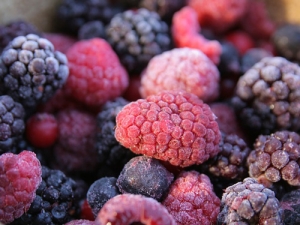Editorial: Happy days
OPINION: The year has started positively for New Zealand dairy farmers and things are likely to get better.
 The disease must have been in the berries through human waste – either through a handler, irrigation or contaminated water used in processing.
The disease must have been in the berries through human waste – either through a handler, irrigation or contaminated water used in processing.
If imported frozen berries caused the five recent cases of Hepatitis A, these must have been contaminated during handling, claims a scientific expert.
Dr John Brooks, consultant microbiologist and director of Microtech Services, says the disease must have been in the berries through human waste – either through a handler, irrigation or contaminated water used in processing.
Nelson based FSL Foods was last week voluntarily recalling several berry product lines after four cases of Hepatitis A were linked to packaged imported frozen berries. MPI was not ruling out further recalls.
This follows an illness which was linked to pre-packaged berries. There was concern in New Zealand last year when a Hawke's Bay fruit packhouse worker was diagnosed with Hepatitis A.
Brooks says Hepatitis A does not colonise plants and fruits and cannot multiply on them.
"The contamination has most likely come from an infected food handler, but might have come from human waste used for field irrigation or from faecally contaminated water used in processing.
"There is nothing peculiar about berries; any food may be contaminated if infected handlers are careless about personal hygiene. A person known to be suffering from Hepatitis A should not be permitted to handle foods for others."
Dr Gail Greening, science leader/consultant, Environmental and Food Virology Laboratory, ESR, says the Hepatitis A virus shows high resistance to drying, heat, refrigeration, low pH, disinfectants and solvents and even survives in seawater for three months.
Pre-harvest contamination of fruits and vegetables, including strawberries, raspberries, blueberries, lettuce, semi-dried tomatoes and green onions, has been reported and has resulted in outbreaks of disease in Finland, the Netherlands, the US and Australia where populations have low or no immunity to the disease.
MPI's director plants food and environment Peter Thomson thanked FSL Foods for their cooperation in the recall. Any named recalled products at home should be discarded, he says.
"In the meantime, our advice about all other imported frozen berries stays the same. People should wash their hands before eating and preparing food. Anyone who is concerned should briefly boil any imported frozen berries before eating them, or ensure cooking exceeds 85°C for one minute.
The World Wide Sires National All Day Breeds Best Youth Camp Best All Rounder plaudit has become family affair, with 2026 Paramount Cup winner Holly Williams following in her sister Zara's footsteps.
DairyNZ is giving New Zealand farmers a unique opportunity to gain hands-on governance and leadership experience within the dairy sector.
Herd improvement company LIC has posted a 5.2% lift in half-year revenue, thanks to increasing demand for genetics.
According to the latest Fresh Produce Trend Report from United Fresh, 2026 will be a year where fruit and vegetables are shaped by cost pressures, rapid digital adoption, and a renewed focus on wellbeing at home.
The Roar is a highlight of the game hunting calendar in New Zealand, with thousands of hunters set to head for the hills to hunt male stags during March and April.
OPINION: The past few weeks have been tough on farms across the North Island: floods and storms have caused damage and disruption to families and businesses.

OPINION: Meanwhile, red blooded Northland politician Matua Shane Jones has provided one of the most telling quotes of the year…
OPINION: This old mutt has been around for a few years now and it seems these ‘once in 100-year’ weather…